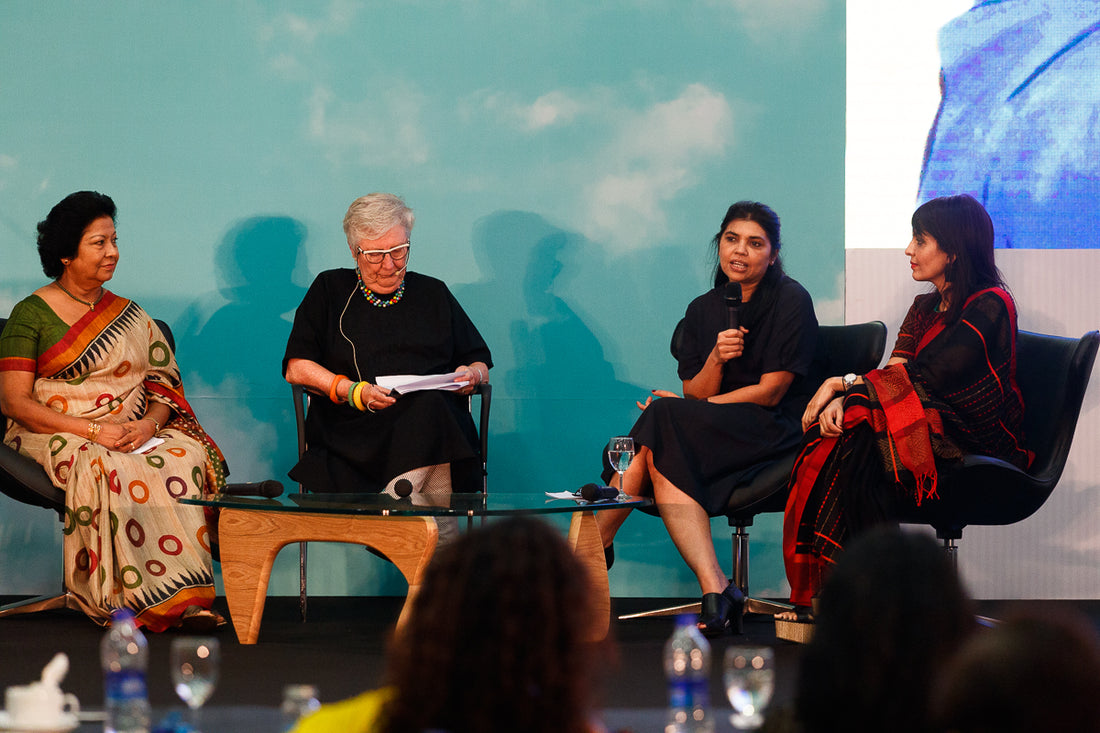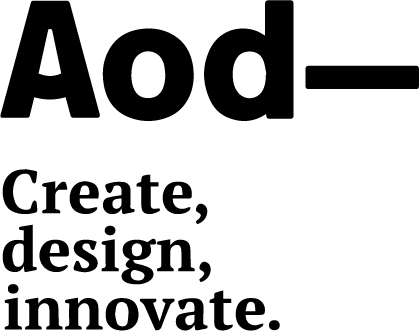
There is a new economic force impacting the globe — women
Share
The Female Futures Forum
The business world is shifting from being classically male dominated and transactional to fluid and emotional. In this new day and age where empathy is the superpower to have, soft is the new tough and fluidity is the name of the game, ‘female’ is the new commercial power to reckon with. Female Futures Forum was originally hosted by the world's biggest business foresight consultancy- The Future Laboratory, in the UK as a forum to discuss one of the most powerful forces that they foresee rising throughout the world— the woman. After its phenomenal success, a South Asian version of it was conceptualised by AOD with regionally relevant topics and discussions moderated by Jane Rapley OBE, professor emerita of Central Saint Martins UK, to be held as part of the Mercedes-Benz Fashion Week Sri Lanka. It attracted a very different audience and conversation forming a rare meeting-of-minds where that civil society and activists get to hear from, and in turn be heard by, the private and state economic developmental forces. This report on the forum captures its learnings for the wider business audience.
Women— and how they can supercharge your businesses
Ruth Marshall-Johnson, the foresight director at The Future Laboratory started the forum with a session that vastly focused on the woman and her role in business today. She assured that female empowerment is about collaborating and acknowledging the female’s essential place in the business today. Women as a market have never been this healthy, Marshall observed, adding that calls for women to ‘lean in’ are increasing. This means that women should proactively help by reaching out, sharing that knowledge and opportunity with other women, especially if you’re in a privileged position.

With only 36.7% of the economically active professionals in Sri Lanka being female, Marshall observed that closing this gap is still a major necessity, with still a long way to go. This disparity is also affecting the entrepreneurial landscape according to Marshall, who pointed out how little female entrepreneurs were funded by venture capitalists, compared to their male counterparts. This, Marshall said, makes no business sense because studies assert that for women, the bottomline in business is often money, fuelled by their natural drive and ability to make and contribute money. It is important to recognise women as social collaborators bearing equal weight as men.
Marshall then went on to discuss how we can begin to address the root of this problem by helping girl children understand their ability to do as much or more as their male peers. She also pointed out that businesses also have a role in fighting the built in bias, because by ignoring diversity, businesses continue to create products and services that perpetuate bias.
Another important observation that Marshall shared was how the automation threat is more of a threat to women, as things are now. This, she argued, need to be addresses by education and business investing more in making women digitally fluent. The future, Marshall assured, will be increasingly female with age that genZ is creating with radical equality where traditional identifiers of race, age and gender are becoming meaningless, for a world that is borderless, ageing, connected and nomadic.
“Powering the woman is not only the right thing to do, but also the profitable.” — Ruth
Looking ahead to a future where female empowerment doesn’t become an echo chamber but rather a change agent for business, Marshall encouraged businesses and educationalists to equip women with entrepreneurial tools to arm them with autonomous power.
The Global Perspective: Diversity and Inclusion as a Strength
Michelle Simmons, the general manager at Microsoft Southeast Asia New Markets, talked about how hitting refresh on gender equality is one of the best things for businesses. Taking the tech giant Microsoft as an example, Simmons led the audience through a narrative of diversity and inclusion in business, and how it leads to profit.

“Diversity is being asked to the party, inclusion is being asked to dance” — Michelle
The business-case for women is that they are the largest emerging market of consumers the global economy has ever seen, Simmons noted. At the same time, more and more countries are legislating diversity and inclusion as we begin to work and live in more global and complex environments.
As measures to bring in inclusivity into the professional setting, Simmons mentioned that transforming the company cultures, empowering our people, growing and retaining diverse talent including women as well as moves to offer flexible work hours and work stations, as well as paternity and maternity leave go a long way. Again, starting young was highlighted by Simmons who encouraged to include women more in technology and train girls in digital. This, she asserted is the only way to expand our pipeline
On a closing note, Simmons delivered the following as her golden rules to stay empowered as a business woman; Be unapologetic— to others and also yourself, ask for diverse feedback, don’t be a victim, have a supportive partner and lean in to be part of a progressive female community.
An illuminating panel on gender mainstreaming between HE Joanne Doonewaard— the ambassador of the Kingdom of the Netherlands to Sri Lanka, Amena Arif — IFC country manager to Sri Lanka and Maldives and Jeeva Perumalpillai-Essex – Former Development Economist of UNDP & World Bank discussed how as much as men are part of the problem, they are also part of the solution.

Jeeva discussed how the statistics of female participation in the workforce only counts registered, major industries, leaving out Women in SMEs, households, daily wage labour etc. She stated that women work, and they work a lot in Sri Lanka. She invited the business world to bring the work to the house, bring the industry to the village, to truly discover the female workforce.
Amena contributed mentioning that it’s not just about promoting the woman— It is also about recognising what they need, whether it is flexible work hours, the ability to voice their opinion or safe transportation. It is about making sure the way you do business works with the life of a woman.
HE Joanne Doonewaard, also stressed on how it is still very important to be supporting those who’re doing something — whether they’re NGOs, collectives, organisations or groups who are active on the topic of powering women.
“It starts with us.” HE Joanne Doonewaard
Manjula Tiwari, founder of Cover Story talked about the setback of losing brilliant female professionals to traditional constraints of motherhood and marriage, when the world should really be open to radical notions like professional parenting that allows women to make more independent career plans.

“Tomorrow, feminism, gender neutrality and inclusiveness should be implicit.” — Manjula Tiwari
Ramya Weerakoon, chairman and MD of Ramya Holdings mentioned the importance of perseverance and understanding that our how many roles can pierce through the average female existence.
Linda Speldewinde, the founder and managing director of AOD and fashionmarket.lk that touches the lives of many women designers, artisans and managers, stated that as a woman you have the ability to form your own worldview, which is what shapes your imprint on this world. She called on women professionals to embrace their natural way of renewal, transformation and change because those were the very things that resonated with business today.
An inspiring panel consisting of LIRNEAsia’s Research Manager Shazna Zuhyle, Kasturi Chellaraja Wilson of Hemas leadership, Varuni Fernando— managing director of Triad, Aruni Goonetilleke— head of corporate banking at People’s Bank, was moderated by Ruth Marshall-Johnson, the foresight director at The Future Laboratory.

Here, Zuhyle encouraged females to take up IT education and join one of the industries that promise exponential growth. Varuni Fernando mentioned that irrespective of gender, what interests her on someone’s work is their spirit and essence.
“Future generations will appreciate people for who they are, not he, she or it….It’s about a healthy distribution of power.” — Varuni
Chellaraja highlighted her key female traits of success as lateral thinking, intuition, empathy and emotional intelligence. She urged women to remain who they are, as they graduate into leadership roles in business.
“You have to go forward with the others, picking them up with you.” kasturi
Goonetilleke too sounded off how she struggled to discover her ‘professional leader woman’ personality. She believes that it is really about levelling the playing fields and giving both men and women the same opportunities.
“Be tough, but it is tough.” — Aruni
Moderated by Aritha Wickremasinghe, founder of Think Equal Sri Lanka, this panel brought together three young opinion leaders to discuss what they see in female futures.
Lonali Rodrigo behind the upcycling label House of Lonali, has a very gender neutral take on women in business; she believes that you’re a man or a woman, you will have challenges if you’re trying to do what you love doing; They will be different perhaps, but there will be challenges.
Aditi Amalean from MAS has a very open-hearted approach to the role of males in creating equality within the workplace and family units. As an example, she pointed out how the new-age male is often open and even interested in bearing equal weights in parenting, which is a direct influence on women’s attitude towards continuing work post motherhood. Sharanya Sekaram, writer and activist behind Gender Space bore a similar view stating that engaging males in the conversation is essential to make working a better experience for women.
“Education is where it needs to start.”— Sharanya

The forum concluded establishing that the need for female empowerment at work boils down to respect. It’s no longer either, or. Motherhood or career, male or female, housekeeper and provider...it’ s about partnerships, inclusivity. The agenda is complicated. There are roles for governments, for business, educators, and individuals. We all have to do our part. Let’s all go out and take the agenda forward.

